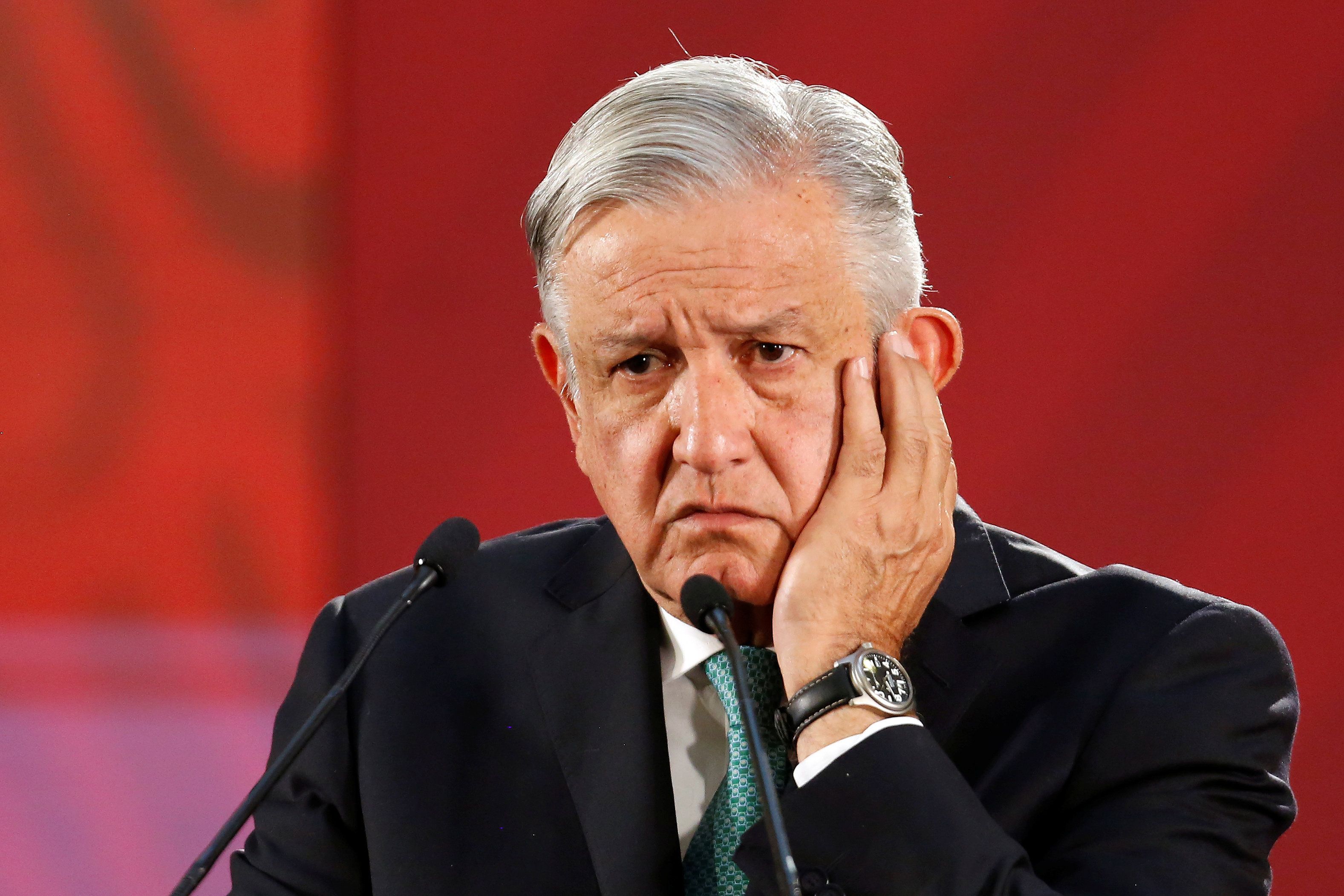June 28, 2019
Andres Manuel Lopez Obrador, known as AMLO, was elected Mexico's president in 2018 on the promise of a "radical but peaceful transformation" of the country, but after seven months in office, he's now being seriously tested.
The challenges: More than 40% of Mexico's people still live in poverty. About 34 million Mexicans live more than two to a room in houses built from dangerously flimsy construction materials.
There's no sign of progress in the fight against violent criminal gangs. Between January and May of this year, there were 14,133 recorded homicides in Mexico, a 6.3% increase from the first five months of 2018, and many of those murders were committed by members of drug cartels.
Relations with President Donald Trump remain tense and costly. AMLO recently deployed federal troops at Mexico's northern and southern borders to stem migrant flows in a bid to ward off Trump's tariff threats — that's an expensive move.
As if he didn't have enough troubles, even the ocean seems to have it in for him. Lopez Obrador last week angered some along the country's Caribbean coast by downplaying the economic and potential health impact of a surge of sargassum, a form of seaweed, on popular Mexican beaches.
AMLO's biggest problem is that he may not have enough money. The solutions he's proposed for these and other challenges require federal funding. But the Mexican economy contracted by 0.2% in the first quarter of this year, and oil production — important for Mexico's economic engine — fell by 10% last month to its lowest level in 40 years.
The bottom line: Lopez Obrador is still one of the most popular elected leaders on earth, but we're about to find out whether he can translate that support into credible solutions to his country's problems.
More For You
Most Popular
- YouTube
In this Quick Take, Ian Bremmer reacts to President Trump’s State of the Union address, calling it “a rehashing of the greatest hits” with little new policy direction.
Small business hiring surged 7% above the 2024 average in December, led by a surprise rally in retail. But with uncertainty still historically high and mounting concerns over tariffs, can this momentum survive 2026? Explore the data behind the resilience of the US small business sector. Get the latest economic insights from Bank of America Institute.
© 2025 GZERO Media. All Rights Reserved | A Eurasia Group media company.
